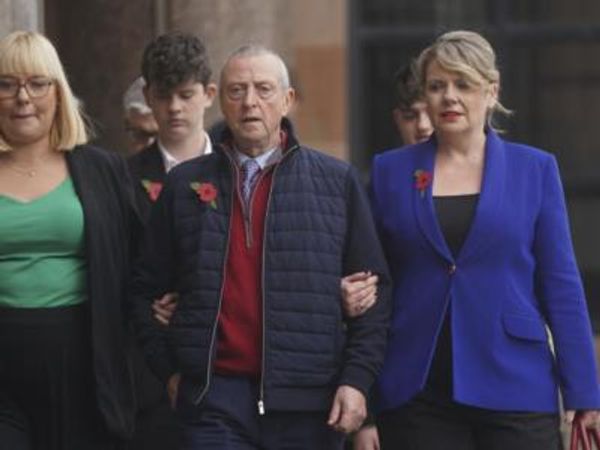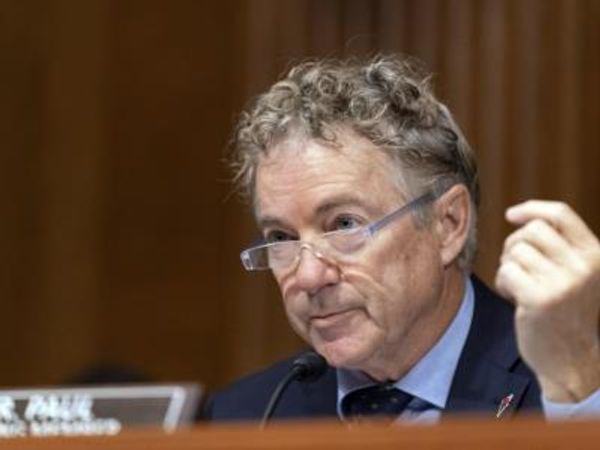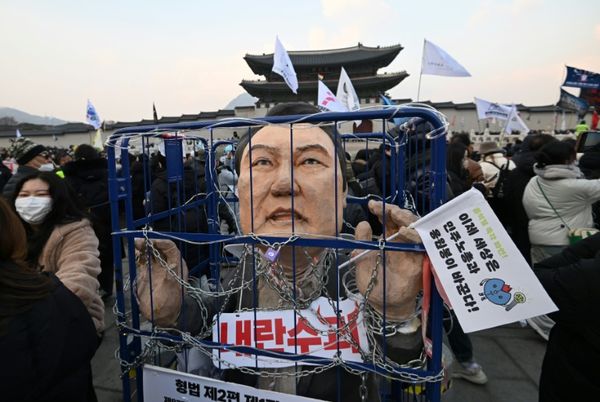
Tunis (AFP) - Opponents of Tunisian President Kais Saied have condemned his "illegal" decision to dissolve the country's top judicial watchdog, a move experts warned Monday is part of a slide towards autocracy.
Tunisia had been lauded as a rare democratic success story following the 2011 Arab uprisings, despite widespread public anger in the country at political parties seen as corrupt and self-serving.
But last July, Saied sacked the government and seized a range of powers, vowing a deep overhaul of Tunisia's political system.
What now for Tunisian justice system?
Saied on Sunday dissolved the Supreme Judicial Council (CSM), after repeatedly accusing judges of corruption, selling posts to the highest bidder and delaying politically sensitive enquiries.
The CSM's president Youssef Bousakher said Saied had "seized the judiciary by force, which represents a danger to the justice system, rights and freedoms".
Political analyst Slim Kharrat said the move was "a very serious and very worrying sign".
"The sole representative of the executive has taken control of the judiciary.It's what we feared," Kharrat said.
"We can now say we're living in a personal authoritarian regime, as Kais Saied is not at all known for listening."
Police on Monday surrounded the CSM's headquarters and blocked its staff from entering, a move Bousakher said was "illegal".
For Fadil Aliriza, editor-in-chief of the Tunisia news website Meshkal.org, that was "yet one more escalation of tensions between the police and the judiciary, which have been growing for years".
How does it impact Tunisia's politics?
Political analyst Youssef Cherif noted that "Tunisians are not particularly fond of their judges" and that many would welcome Saied's latest move.
But Cherif warned that the CSM is "another check on authoritarianism that's being discarded".
Aliriza said Saied's core supporters had long called for a "cleansing" of the judiciary, but that most Tunisians were more worried about the crumbling economy -- on which Saied has largely kept the same approach as previous administrations.
"Saied had lost most of his support among the political elite, but polls also suggest his support has waned among the broader public too," he said.
Without his own party and with few allies in civil society, "the main institutional players on which President Saied is relying are the security forces", Aliriza added.
What will President Saied do next?
Kharrat warned that Saied "won't stop now" and that Tunisia was "rejoining the club of dictators and authoritarian regimes".
Dissolving the CSM will allow the president "to finish off his project to dismantle every institution, all the checks and balances in place for the past decade", he said.
European powers and the US have publicly urged Saied to bring back the separation of powers and return to the constitution.
But Aliriza said the West had "largely ignored" both abuses under former dictator Zine El Abidine Ben Ali and sometimes deadly violence by post-revolution authorities.
"As long as Tunisia does not stop security cooperation or make a geopolitical or economic realignment away from Western dependence, it's unlikely there will be serious changes in these relations," he said.







